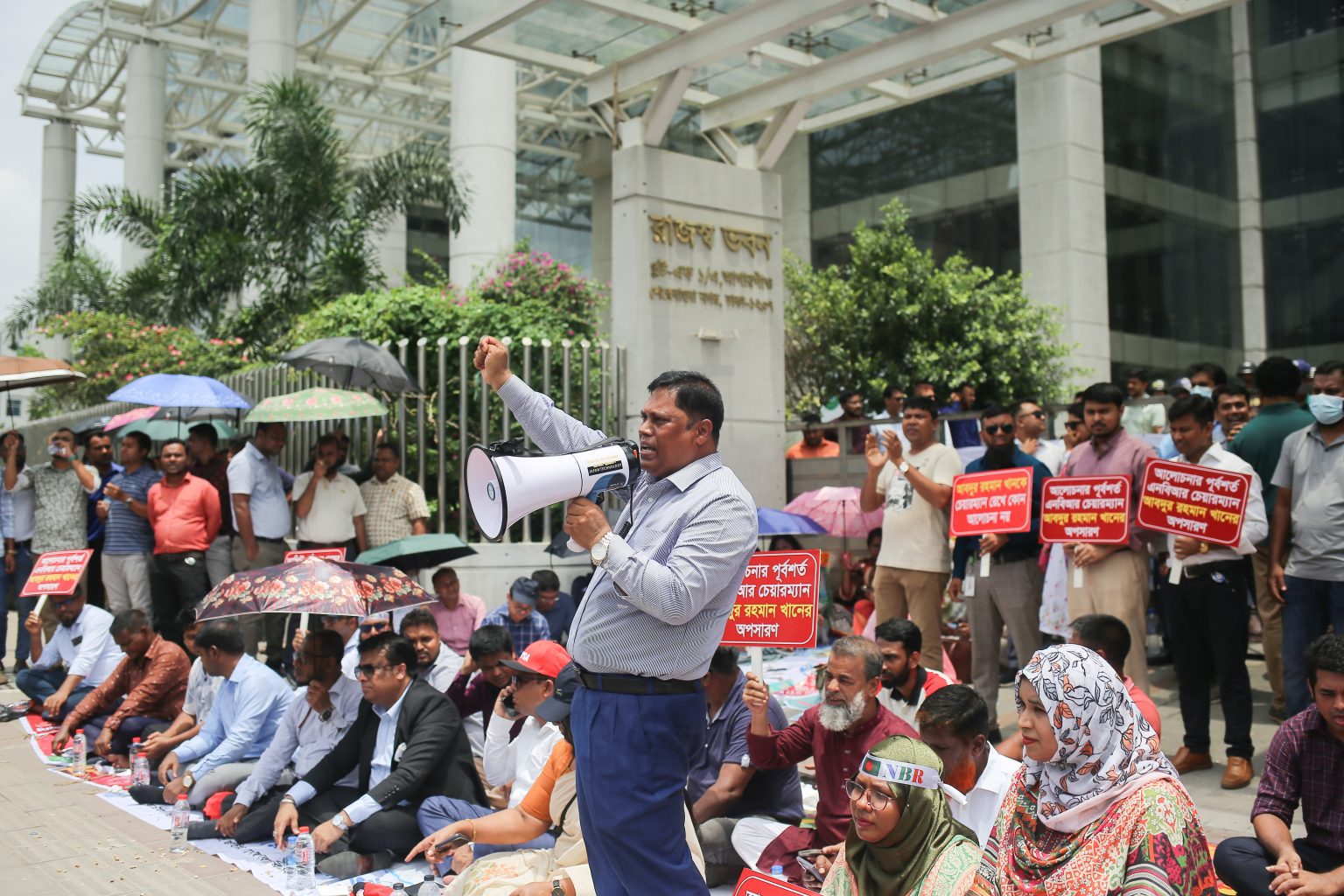The unrest that began in May over the splitting of the revenue board into two separate divisions has had a double-edged impact – subsequent government measures have caused panic among protesting employees, and the overall effect has significantly dented revenue collection.
Widespread suspensions, mass transfers, and investigations by the Anti-Corruption Commission (ACC) have left officers and staff fearful and demoralised.
NBR officials say the prevailing uncertainty is making it difficult for them to concentrate on revenue collection, which is reflected in the July data released on Wednesday.
In the first month of the fiscal year 2025–26, the National Board of Revenue (NBR) posted a shortfall of nearly Tk3,000 crore in revenue collection. Despite the protests having ended, revenue collection has not improved as expected.
While the authorities deny the measures amount to collective punishment, officials say the scale of action against so many colleagues is unprecedented and clearly linked to the recent protest.
Under this situation, officials of the revenue board are passing their days in panic, they added.
The protests began on 13 May this year after the government issued an ordinance dissolving the NBR and creating two new divisions – the Revenue Policy Division and the Revenue Management Division.
This restructuring led to widespread dissatisfaction among NBR officials, culminating in a nationwide strike in June that disrupted import-export operations and halted revenue collection.
The protests intensified after five officials were transferred on 22 June, which demonstrators described as “vindictive,” tearing up the orders in symbolic protest.
As of 18 August, some 36 officials and employees of the public exchequer have been suspended for various allegations, including tearing up copies of transfer orders. Moreover, at least five senior officials have been sent to forced retirement, accused of involvement in the protests.
Additionally, the ACC started investigations against 17 officials who are directly or indirectly involved in the protests.
These actions have involved a range of personnel from senior officials to guards, as government orders showed.
Besides, the tax administration has carried out a large-scale reshuffle in its field administration, and over 300 officers have been moved in less than a fortnight.
Although reshuffling in field administration after the national budget is a regular practice, officials say the sheer scale this year has drawn significant attention within the revenue administration.
No one, including commissioners, additional commissioners, joint commissioners, and deputy commissioners, has been spared from transfer, the officials said.
According to the transfer orders, a significant number of officers have been assigned as full-time staff to various projects – positions that usually require only one or two officials but now have 10 to 15 each.
Wishing to remain anonymous, a senior officer told The Times of Bangladesh, “These projects normally involve one or two officers, with just a couple of meetings a month. Assigning so many means they essentially have no work – it’s like sidelining them.”
However, NBR Chairman Abdur Rahman Khan denied that the action was a form of wholesale punishment.
Responding to a question from journalists at the Secretariat recently, he said, “No one was transferred for participating in the movement. Only those who tore official transfer orders in front of the media have faced action.”
Individuals involved in mediating between the government and protesting NBR officials say the punitive actions against the officers contradict the government’s earlier assurances.
“During the mediation, the government assured us they would not take any punitive action against the officers immediately,” Anwar-ul-Alam Chowdhury (Parvez), a mediator between the government and the protesting officers, told The Times of Bangladesh.
“But we are now noticing the opposite of the assurance,” Parvez, also former president of the Bangladesh Garment Manufacturers and Exporters Association (BGMEA), added.
He further said, “The government could have taken the current steps later or more gradually. They are turning us into villains.”


